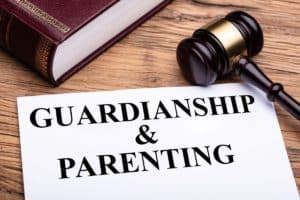
In Illinois, a parent is also considered the legal guardian of his or her child until the child turns 18. Guardians have the legal right to make important decisions for a child such as choosing medical care and handling financial situations. Professionals like school officials and doctors don’t question a parent’s authority while the child is less than 18 years old. Once a child legally becomes an adult, the parents lose this authority.
If you have a child with special needs, you should be planning for what will happen upon your child’s 18th birthday and afterward. Depending on your child’s abilities, you may need to create a guardianship to protect your child’s well-being during adulthood.
Basics of Guardianship for Individuals With Disabilities
First, not all individuals with special needs require a guardian. Your specific situation will dictate if this is the best alternative and how extensive the guardianship should be. Guardianships can be limited or all-encompassing, may only deal with financial matters, or may address personal decisions such as health care and living arrangements.
A guardian may be appointed by an Illinois Probate Court upon the filing of a Petition for Guardianship by the person who wants to become the guardian for the incapacitated person or “ward.” The petition must state whether the petitioner is seeking a Guardian of the Estate to handle financial matters for the ward, a Guardian of the Person to manage the ward’s personal affairs, or both.
Usually, the Probate Court will appoint one or both parents to act as guardian or co-guardians for a child in need. If the parents can’t agree or get along, an independent person may be named. Also, if extensive assets are involved, a separate financial guardian may be appointed.
Issues to Consider When Setting Up a Guardianship
If you are a parent of a child with a disability, your child may outlive you and need a guardian after you are gone. It’s important to decide who should be named as successor guardian when you are no longer able to act as guardian yourself. Since the successor will take your place and make all of the decisions you are currently making for your child, choose wisely.
Often, the successor guardian is a sibling or other close family member of the person with a disability. Choose the person who will provide the best care, not necessarily the oldest or the one who lives the closest.
Be sure to discuss the legal obligations of guardianship with the person you are considering as the guardian for your child. Make sure that person is willing and able to accept the role and continue the care you have begun. The guardian will be accepting important responsibility to care for your loved one and the position is not to be taken lightly.
Create a detailed plan for the guardian to follow. The plan should include where your loved one will live, what medical care will be required, financial planning such as Special Needs Trusts and government benefits, whether the guardian will also be the Trustee of any trusts that provide for your child, and other relevant issues your situation requires.
Put your wishes in writing beyond the Petition for Guardianship. For example, name the proposed guardian in your Will and designate a successor guardian if the first person becomes unable or unwilling to act as guardian when the time comes. Also, create a Letter of Intent that addresses all aspects of your child’s care including potential guardianship matters.
Keep in mind that the guardian you name can also name a successor guardian if they die or become unable to serve after you are gone. Be sure to discuss successor guardian options now, in case you are unable to have the discussion later.
When You Need a Guardianship, We’re Here to Help
Providing for your child with special needs as he or she becomes an adult and into the future is an important, complicated task. With sound legal advice and a solid understanding of guardianships, you can rest assured knowing your loved one will be taken care of for the rest of his or her life. Don’t face this challenge alone, reach out to our team of compassionate special needs planning attorneys today.
Rubin Law is the only law firm in Illinois exclusively limited to providing compassionate special needs legal and future planning to guide our fellow Illinois families of children and adults with intellectual disabilities, developmental disabilities, or mental illness down the road to peace of mind. For more information, email us at email@rubinlaw.com or call 866-TO-RUBIN.



